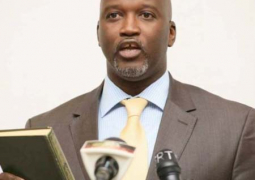The drop in the number of voters stemmed from the boycott by six opposition parties in the country over “yet to be met demands” by the Independent Electoral Commission (IEC).
The opposition parties have boycotted the parliamentary polls, after declaring in a statement recently that they were “pushed not to participate in the National Assembly elections.”
In a joint statement signed by the leaders of the opposition parties, namely UDP, PDOIS, NADD, PPP, GMC and GPDP, they said since the IEC has made it categorically clear that it will not postpone the polls, to accommodate “our genuine concerns and win the confidence of our supporters we, therefore, are pushed not to participate in the National Assembly elections.”
Voting, according to statistics from the IEC, will take place in 510 polling stations across 23 constituencies in the country.
The ruling APRC faces election in 23 constituencies against 18 independent candidates and eight from the opposition National Reconciliation Party (NRP), which broke ranks with the rest of the opposition to contest the polls.
While the ruling Alliance for Patriotic Reorientation and Construction (APRC) party looks optimistic of sweeping the polls, the opposition, on the other hand, had earlier called for the postponement of scheduled polls, citing what they said was the delay by the IEC to meet the opposition to discuss how to put the right conditions in place for genuine elections in the country.
However, the IEC rejected the criticism, insisting in a letter dated 5th March that the National Assembly elections would be held as scheduled.
Ahead of the polls, observers have started to arrive in the country. Observers from the African Union, Commonwealth, Organisation of Islamic Conference among others have already arrived for the polls.
The IEC said polling stations open at 7am and close at 6pm, but if voters are in the queue at 6pm, they should be allowed to vote.
Read Other Articles In Article (Archive)

Truth and Reconciliation Commission within six months – Justice Minister
Mar 24, 2017, 10:54 AM


